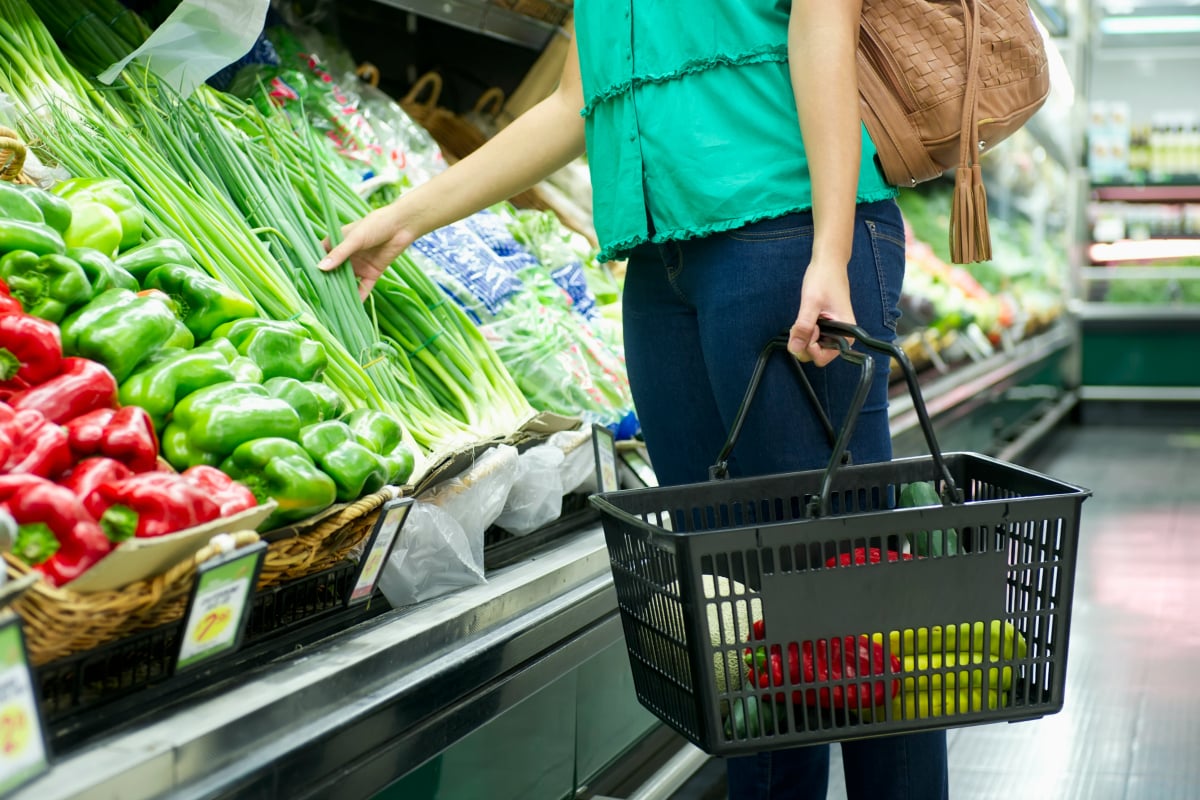
By now, we’re all across the physical distancing and hygiene recommendations necessary to minimise the risk of COVID-19: stay home; wash hands regularly; limit public gatherings; avoid hard, frequently touched surfaces, and so on.
Tricky, though, when you need groceries. You know, given that the supermarket is… elsewhere, full of people and has many, many hard, frequently touched surfaces.
So what can you do to help keep yourself and the community healthy when you eventually have to head out for supplies?
Watch: Simple things you can do to protect yourself from COVID-19.
What should I do before I leave the house?
Most importantly, clean your hands. That means scrub them thoroughly for at least 20 seconds using soap, or use a sanitiser gel with 60-80 per cent alcohol content.
Also, pack santiser gel or wipes, if you have them.
“Grocery shopping requires touching surfaces and items, including trolleys and baskets,” virologists Associate Professor Ian Mackay and Dr Katherine Arden explained via The Conversation. “Sometimes sanitiser or antibacterial wipes are available for hands and handles at the store entrance — but they’re often not, so bring your own.”
What shopping bags should I take?
The jury's still out on this one.
It’s unclear what level of risk is posed by reusable bags. But research has shown, though, that porous surfaces are much less likely to hold viable amounts of the virus: “On fibrous and absorbent surfaces such as cardboard, paper, fabric and hessian, it becomes inactive more quickly,” Assoc. Prof. Mackay and Dr Arden explained.

Top Comments
Thanks guys!